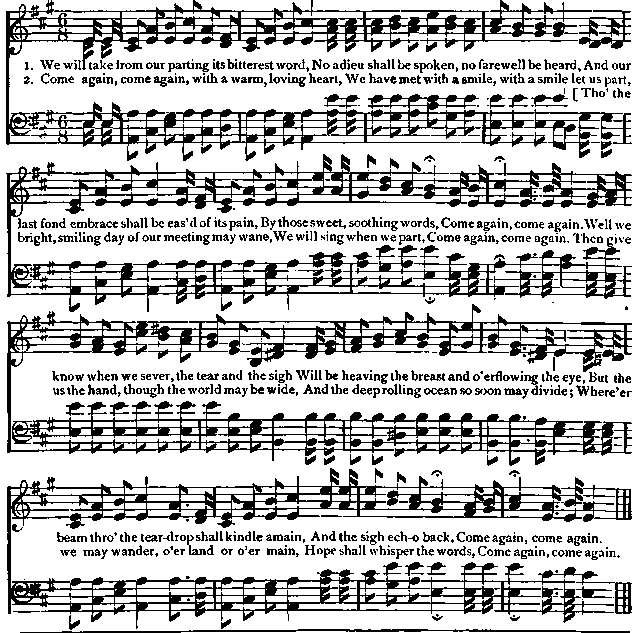Franklin Square Song Collection - online songbook
200 favorite songs and Hymns for Schools, Homes Lyrics & Sheet Music
| Share page | Visit Us On FB |
|
*52 |
FRANKLIN-SQUARE SONG COLLECTION. |
||||
|
Ballads.—The conditions under which our ancient ballad-poetry arose are tolerably well understood. It belongs to a primitive state of society, in which the knowledge of letters was restricted to a select class, and tradition was the sole vehicle of history to the mass of the people; when manners were ruder, laws less reverenced, the passions more unbridled, the utterance of emotion franker and less conventional than now. Though the writers cannot always be supposed contemporary with the events they record, they uniformly address a sympathetic audience, whose standard of morality or sentiment, and level of culture, little, if at all, differ from those pre- |
vailing at the period to which their traditions refer. The Border minstrelsy, for example, was obviously written for the children or grandchildren of the mosstroopers whose exploits it glorifies, a generation to whom appeals to a higher code or a purer taste than their ancestors accepted would have been wholly unintelligible. The general characteristics of the best specimens that remain to us, whether of the narrative and legendary ballad or of the lyrical and emotional ballad, are an unconscious simplicity of thought and language, a coarse but vivid realization of the scenes and delineation of the personages presented. They show few marks of artistic construction |
||||
|
COME AGAIN. |
|||||
|
|
|||||
 |
|||||
|
|
|||||
|
or ornament, beyond a rudimentary sense of pictorial expression, and the occasional introduction of abrupt snatches of wild fancy. In those cases where a burden is added, it serves either to mark the leading motive of the theme, to suggest the musical accompaniment to which the piece was set, or that "rhythm of the feet" from which the composition first took its |
forms, it is the simplest and the most direct in its effects. The testimony borne to its potency by Sir Philip Sidney, by Addison, and the authority for whom Fletcher of Saltoun stood sponsor, would be unanimously endorsed to-day. The varnish of our social conventionalism is, after all, extremely thin, and the most cultivated audience cannot listen to a plain story of heroism or of pathos without flushing cheeks and burning eyes. For enshrining the memory of any grandly heroic achievement, for giving utterance to any pure emotion, the ballad remains the most appropriate vehicle.— Contemporary Review. |
||||
|
name. |
The impossibility of restoring the conditions |
||||
|
|
|||||
|
|
under which this description of poetry arose, does not oppose any obstacle to its successful cultivation in our day. To surrender the type would be a gratuitous waste of means, for of all narrative and lyrical |
||||